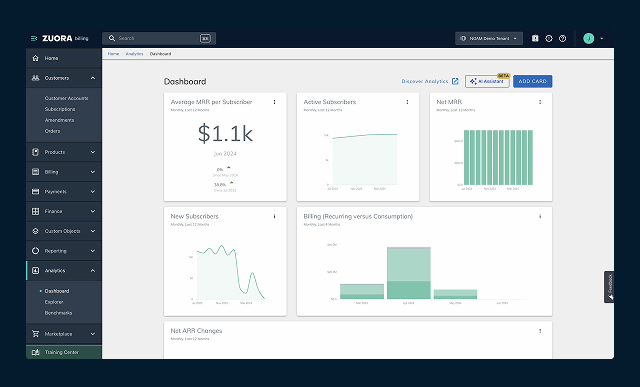It’s something of an understatement to say there’s no lack of intelligent technology in the world today. From blockchain and artificial intelligence, to the sprawling possibilities of the Internet of Things (IoT), technologies are changing the shape of the world as we know it. But are they being used as effectively as they could be to tackle some of the biggest problems we face as a global society? I’m not sure they are. Yet.
Earlier this year, the UK Parliament declared a climate emergency, and the UK Government has also just amended its carbon neutrality goal to almost zero greenhouse gas emissions by 2050. But it is not just a government directive. Consumers, in both their work and personal lives, feel strongly about the issue too. A recent study of more than 2,000 UK employees, taken by culture and behavioural change consultancy Kin&Co, found that 35 percent of employees want their employer to act against climate change. Similarly, 66 percent of consumers said that they would feel more positive about companies that can demonstrate they are making efforts to reduce the carbon footprint of their products. Yet only 10 percent of UK companies have a set carbon emissions reduction target. How can we, as technologists, help bridge this gap between people’s expectations and what businesses and policy makers are prepared to do?
For many years the technology industry has been at the forefront of driving business performance and excellence, a position we should use to champion the use of our tools in driving this next vitally important chapter in business evolution. We also know, from the statistics mentioned earlier, that there are significant ‘soft’ benefits such as better customer and employee engagement around shared values. There are also discernible commercial benefits to being a more sustainable business. Reducing energy use in a data centre, for example, is as much a cost issue as it is a carbon one. So we have every reason to lead the charge on using technology to better understand our footprint on the planet.
This requires a shift in vision and mindset, but it is possible
Just one example is in the way we harness the effectiveness of data – the currency of the technology industry – for the greater good. Data analytics can provide the basis for a variety of potential solutions from helping locate and identify harmful emissions, like AI company WattTime is doing, to creating optimised mobility patterns by examining traffic movements. It can also flag pressure points along the supply chain. For example, data from the Argo project – a global initiative of 3,800 free-drifting profiling ocean floats – is being used to aid the monitoring of environmental conditions that affect fish stocks and biological productivity.
Analytics programmes can connect disparate sources of information to create more circular material usage. Initiatives such as the Plastics Cloud collects existing and live data from across the plastics supply chain to spark new ideas for waste reduction. Plus, we already know the power of algorithms in driving customer activity. So, what if we used them to guide customers towards making more carbon friendly choices? What if we designed our ERP systems to tell us when these positive choices were made so that we could reward and reinforce the behaviour we want to encourage?
The traditional model for many technologies has been to focus on the benefits they bring for business. Instead we must begin with what our tools can do to support much more meaningful long-term objectives and then work on the best way to commercialise them. This requires a shift in vision and mindset, but it is possible and necessary.
How can we help bridge this gap between people’s expectations and what businesses and policy makers are prepared to do?
Every business, regardless of what it does, has some of the same basic building blocks – premises, online presence, supply chain, production process – all of which contribute to its carbon footprint; as well as to that of its customers, suppliers and partners. Many businesses know they are part of a commercial ecosystem but they don’t always realise that this circular connection matters when it comes to carbon emissions policies as well. Once we realise that we all stand to gain from a more sustainable ecosystem, the closer we are to setting new norms. This could be a rare instance of where commodisation of a process could come to be viewed as a positive!
I have the good fortune to work for a company whose purpose statement is ‘to help the world run better and improve people’s lives’ and it is a statement which truly defines and underpins all our business decisions and operations. I don’t bring this up to be self-congratulatory, but rather as an illustration of a change we need to see more widely. To quote renowned meteorologist, Eric Holthaus: “We’re about to enter one of the most creative, meaningful, transcendent eras of human history – simply because we must.” The time to use our knowledge and expertise to navigate that era is now. And if our collective societal ambitions around climate change are to be realised, the imperative to do so has to be built into the heart of every business, not tacked on as an afterthought.
Stephen Jamieson is head of sustainable business innovation, Northern Europe, SAP. Stephen leads the innovation function at SAP in the UK where he works with organisations to improve performance and find new markets through the use of digital technology and design thinking.





